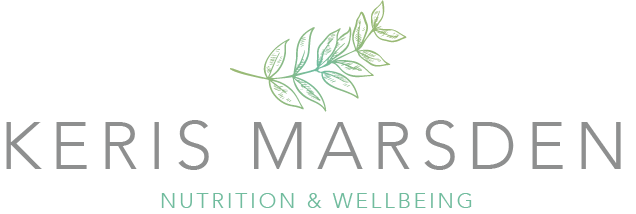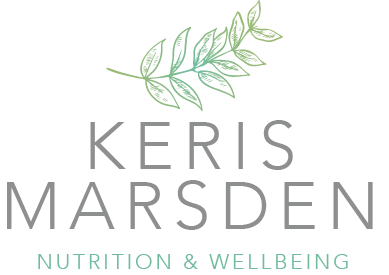Seven Essentials For Healthy Ageing
You’ve likely realised with age that you just don’t get away with the things you did in early adult life.
Weight gain, fatigue, monster hangovers, mood issues, sinus problems and gut issues all come thick and fast when you’re try to keep up with your 20-30 year old self.
It goes without saying the hedonism (smoking, excess booze, junk food, recreational drugs, back to back late nights …) needs to ditched or reigned in significantly as you age, depending on your current health.
Your risk of disease increases with every decade and the harder you partied in your teens and twenties, the greater the risk.
Fear not though, there’s lots you can do now that makes a difference.
Here’s 7 things that need to shift up the priority list to help mitigate the effects of ageing and make up for those wilder times.
These should be part of your routine until checkout now:
1) Eat more protein
As we age we’re vulnerable to muscle loss, known as sarcopenia. It starts in you mid 30’s. Eventually something known as anabolic resistance also kicks in, this is where you body gets stubborn about building muscle.
One thing you can do to help override these processes is increase your dietary protein intake alongside regular exercise (see following points).
Ideally consume 1.2g of protein per kilo of bodyweight and after the age of 65 increase this to 2g per kilo of bodyweight (as protein absorption decreases with age).
For most people this will mean eating 80-150g protein daily. See my protein article for more info on how to do this.
2) Take nutritional supplements
Alongside a high quality, real food diet (meat, poultry, fish, eggs, dairy, vegetables, wholegrains, fruit, nuts and seeds) you will likely need to supplement as you age.
Digestive capacity, medications and chronic diseases will all impact your nutrient needs and status.
Ideally invest in a session with a Registered Nutritionist to obtain a bespoke plan designed to meet your personal needs.
Here’s some supplements I tend to recommend frequently to clients:
Vitamin D3 400-2000 IU daily (during the autumn and winter in the UK)
Vitamin K2 50-200 mcg daily
Magnesium citrate or glycinate 350 mg daily
Protein powders / creatine (for muscle preservation)
Others common recommendations include omega 3’s, calcium, zinc, B vitamins and vitamin A depending on a client’s dietary intake.
3) Increase your step count
Research comparing different step counts observed that increasing your daily step count from 2,700 to 8,000 could lower risk of dying by a whopping 48%.
If you can nudge it up to 12,000 the risk is lowered by 59%
Even just a small increase of 2000 steps reduces disease risk.
Walking also supports your:
·Mental health
Sleep quality
Appetite regulation
Ability to lose weight and maintain a healthy weight
4) Fasting, time restricted eating or calorie restriction
Although there’s some promising studies on shortening your eating window and aiming to eat for 10-12 hours or even dabbling in intermittent fasting.
When compared to calorie restriction it isn’t necessarily any more beneficial so it depends on what works for you. All will support you metabolically, lowering insulin levels and improving risk of disease.
That said, many clients of mine have beefitted from having cut off points when it comes to eating and stopping eating at 7pm means they digest their meal (and sleep better) and are less likely to dive into the crisps and chocolate late at night.
Equally some clients have found intermittent fasting makes a calorie reduction much easier and takes the thought out of the process.
Find what works for you but the overriding message is don’t eat too much.
5) Resistance training and high intensity interval training (HIIT)
Pretty much every chronic disease and the risk of cognitive decline benefits from regular, resistance training (and increasing muscle and movement skills as a result). Ideally obtain a programme and expert advice (I highly recommend Matt Whitmore for online programming)
HIIT needs some adaption with age. Sprints may not be on the cards as you age but exercise bikes and rowing machines are great low impact options.
If you prefer walking try striding up hills with pace or a set of steps on your walks to get your heart pumping and repeat 4-8 times.
6) Keep developing new skills
When you learn a new language, sports, movement skill or craft you fire up pathways in the brain and connections with different areas of the body.
It’s like treading a path in long grass and when you repeat it over and over it becomes easier. As a result your brain activity becomes more efficient.
To you this means improved memory, concentration and greater mental acuity.
Learning to lift weights, play a sport, dance, play an instrument, mastering ceramics, yoga or a martial art are all great options. Many of these will also boost your mood, have a social element and improve both your confidence and sense of purpose, all of which are associated with longevity.
7) Get adequate sleep
Your sleep hormone melatonin declines with age. That’s why the Nannas are always up at the rack of dawn.
There’s a lot of discussion on the benefits of melatonin supplementation for the elderly. It’s still only offered on private prescription or in nursing homes here in the UK but that may change in future as research emerges.
You’d need to have been living under a rock to have missed the memo about the importance of sleep but just as a reminder. Sleep deprivation increases your risk of:
Joint injuries (adults, teens and children)
Cancer
Obesity
Type 2 diabetes
Cardiovascular disease (high blood pressure, stroke,
Depression
Kidney disease
Aim for at least 7 hours of quality sleep, 8-9 hours is likely more optimal.
Ditch the technology 30-60 minutes before bed, use an eye mask or blackout blinds and consider sleep meditations to help you nod off.


